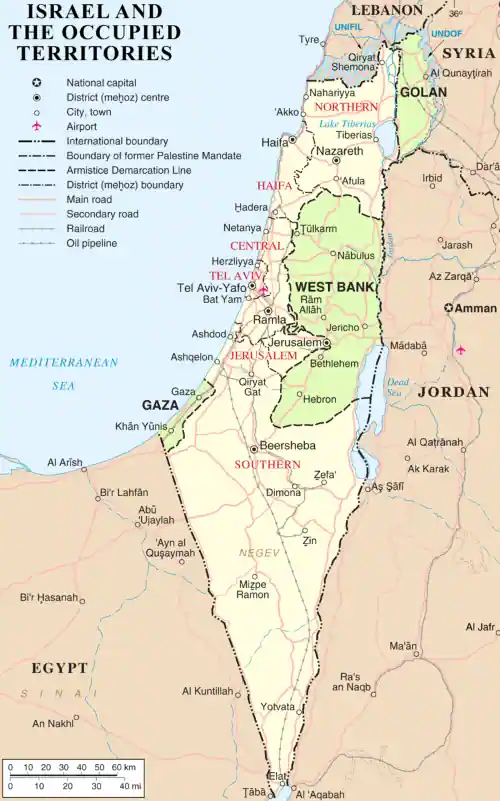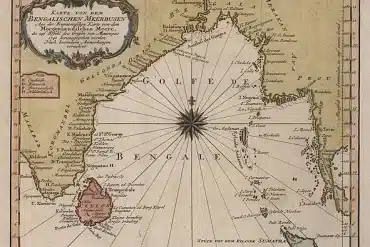On December 30, 2022, the United Nations General Assembly adopted a resolution requesting the ICJ (International Court of Justice) for an advisory opinion on the legal implications of Israel’s unlawful occupation of Palestinian territories. The draft of the resolution was passed by the UN’s Special Political and Decolonization Committee (Fourth committee) on November 11, 2022. The draft was prepared by the State of Palestine. Now the question arises: What impact could the ICJ advisory opinion have on Israel?
It is important to note that during the 1967 Middle East conflict, Israel occupied the West Bank, Gaza Strip, and East Jerusalem. These territories are considered by the Palestinians to be the future site of their independent state. The ongoing occupation of these areas has been a source of tension and conflict in the region for decades, and the Palestinians have long sought recognition and self-determination in these territories.
What is ICJ’s advisory opinion?
ICJ, also called the World Court, is the highest United Nations (UN) court that resolves disputes between states. It does not have the authority to prosecute individuals like the International Criminal Court (ICC), but instead primarily works between states. The ICJ is located in The Hague, Netherlands.
The ICJ can provide advisory opinions on legal questions at the request of the UN General Assembly or the UN Security Council, even if the relevant countries do not consent. To do this, the Court creates a report outlining its position on the matter.
Forming a legal opinion through the ICJ can take as long as two years and does not require the majority approval of the 15 judges involved in the drafting process.
These advisory opinions, while not legally binding, are highly respected and considered to have significant moral and political weight. They are seen as authoritative interpretations of international law and are expected to be taken into consideration by states that wish to follow international law, even though they are not required to do so.

Does the ICJ have jurisdiction over Israel?
Although Israel is a not a party to the Statute of the ICJ, according to Article 35, paragraph 2 of the Statute, the Court is also open to states that are not parties to it. This Article states that the relevant conditions for non-party states to bring a case before the ICJ will be determined by the UN Security Council, but these conditions must not put the parties at a disadvantage before the court.
Furthermore, Article 93, paragraph 1, of the Charter of the United Nations provides that all Members of the United Nations are ipso facto parties to the Statute. So, there should not be any confusion regarding ICJ’s jurisdiction over Israel.

Previous ICJ advisory opinion regarding Israel
An advisory opinion issued by the ICJ in 2004 in the case concerning the separation wall confirmed that the Geneva Conventions apply as a matter of international law to the territories occupied by Israel. The ICJ’s opinion also stated that the establishment of settlements in these territories is a violation of international law that continues to this day. The ICJ called on Israel to stop building the wall, dismantle the sections that have already been built, and compensate for the damage caused.
Israel’s legal counsel disputed the opinion, claiming that it was based on incomplete and outdated data because Israel did not cooperate with or provide data to the fact-finding team. Despite the advisory opinion, Israel has continued to build the wall and has not provided any reparations.
The UN Independent International Commission of Inquiry on the Occupied Palestinian Territory, including East Jerusalem, and Israel submitted a report to the UN General Assembly on September 14, 2022, which concludes, “Israel treats the occupation as a permanent fixture and has – for all intents and purposes – annexed parts of the West Bank, while seeking to hide behind a fiction of temporariness. Actions by Israel constituting de facto annexation include expropriating land and natural resources, establishing settlements and outposts, maintaining a restrictive and discriminatory planning and building regime for Palestinians and extending Israeli law extraterritorially to Israeli settlers in the West Bank. The International Court of Justice anticipated such a scenario in its 2004 advisory opinion, in which it stated that the wall was creating a fait accompli on the ground that could well become permanent and tantamount to de facto annexation. This has now become the reality.”
The possible impacts of the latest ICJ advisory opinion
The draft resolution follows the release of the report by the UN Independent International Commission. The ICJ is now mandated to launch further investigation into the issue, but this process could take an extended period of time, possibly several months or even a few years.
“An advisory opinion is likely to feed back into the rest of the UN bodies, though, and increase pressure for political action against Israel,” said Professor Yaël Ronen, a law professor at the Academic Center for Science and Law in Hod Hasharon, Israel, in an interview with Haaretz.
It is currently unclear how the political pressures will be addressed by the stakeholders. Haaretz quoted Professor Yuval Shany, the Hersch Lauterpacht Chair in Public International Law at the Hebrew University, saying, “It won’t be a silver bullet. The main game is politics, and law is just one form of leverage that could be used.”







